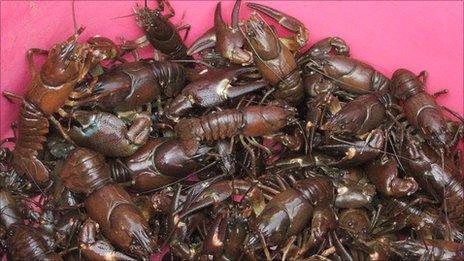Northumberland site provides safe place for crayfish
- Published
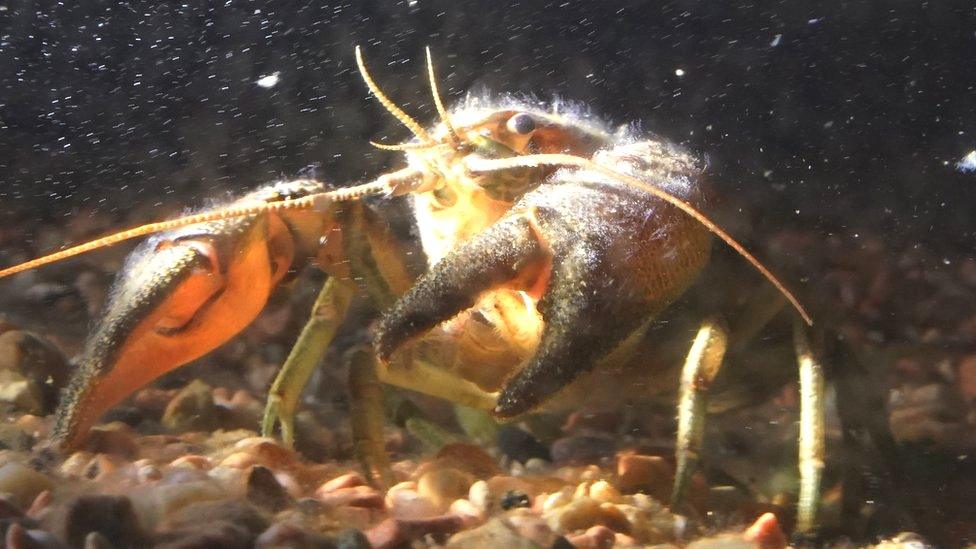
White-clawed crayfish are being killed off by American signal crayfish which were introduced to the UK in the 1970s.
A refuge has been created to allow endangered crayfish to breed in safety.
White-clawed crayfish - the UK's only native crayfish - were once common in the River Wansbeck, in Northumberland.
But the species is threated by the invasive American signal crayfish, which competes for food and can pass on a deadly bug.
The newly-created Ark site at Wallington will give the native crayfish a safe place to breed and build their numbers.
National Trust rangers have spent 15 months adapting an old cattle drinking hole into a safe place which imitates the natural habitat of the crayfish.
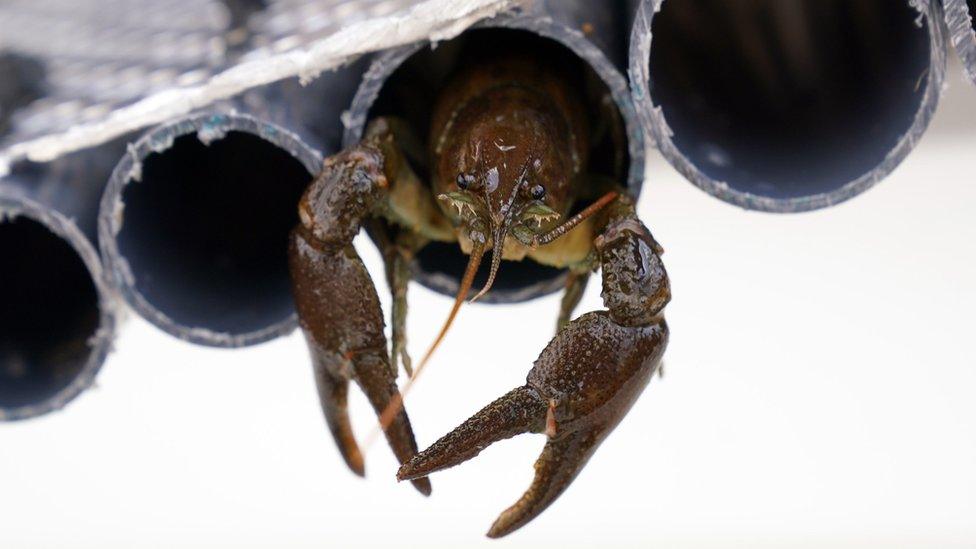
The Ark site will offer the native white-clawed crayfish a safe place to breed
The work includes using dry-stone walling techniques to create crevices as well as the addition of small pipes.
Matthew Fitch, National Trust ranger, said the species was "very much on a knife edge".
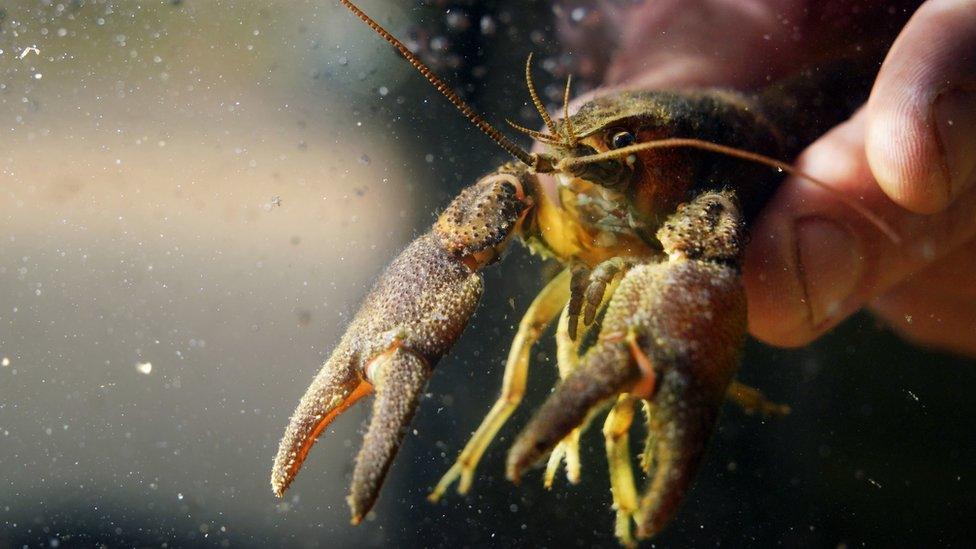
About 100 white-clawed crayfish have been taken to an adapted old cattle drinking hole at Wallington, run by the National Trust
"It's so important we shore up the healthy populations, like the one we're fortunate to have here on the Wansbeck, as quickly as we can, to make sure it doesn't vanish from our rivers altogether," he said.
"The 'Ark' site will not only give us a safe haven for white-clawed crayfish at Wallington but also contribute to the long-term protection of the animal, as the crayfish that are kept here can in theory be used to repopulate other waterbodies."
The site is fed by a spring, and the water has to flow over significant barriers before it reaches the Wansbeck, meaning the chances of invasive American signal crayfish or disease entering are low.

Follow BBC North East & Cumbria on Twitter, external, Facebook, external and Instagram, external. Send your story ideas to northeastandcumbria@bbc.co.uk, external.
Related topics
- Published31 December 2021
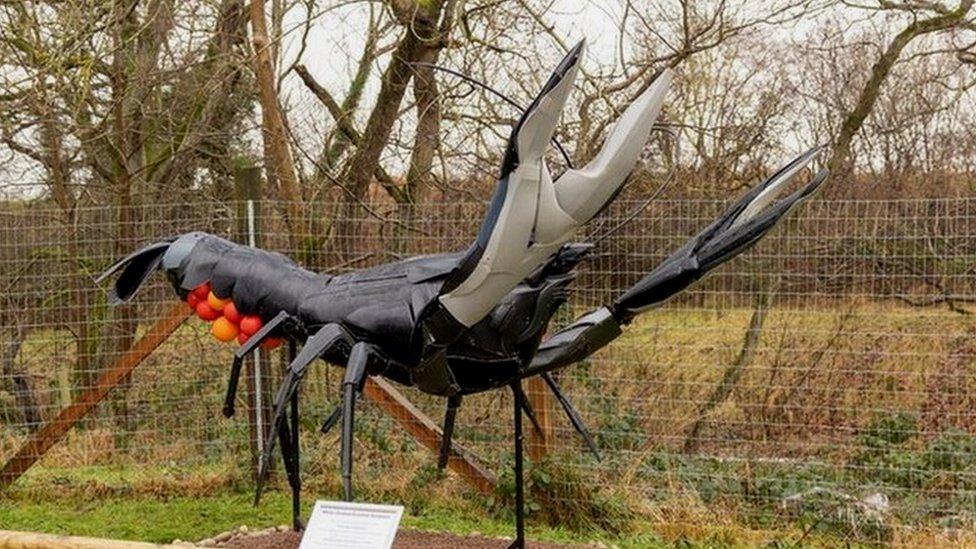
- Published23 April 2021
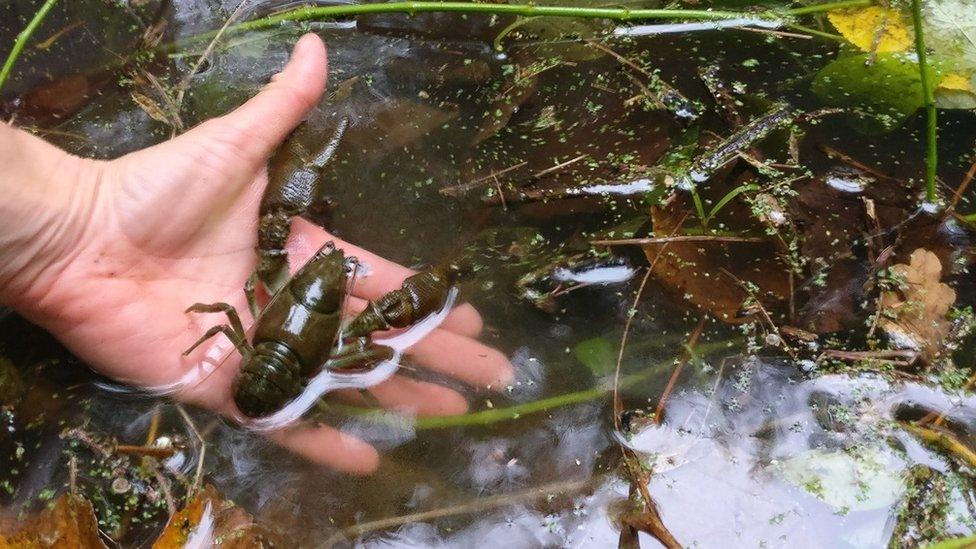
- Published10 June 2011
